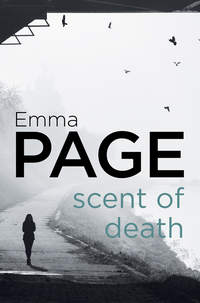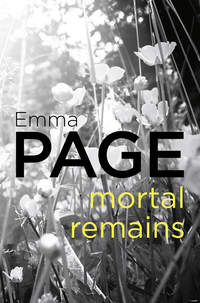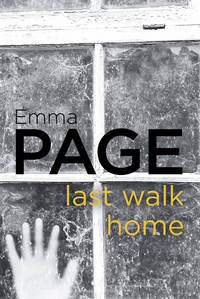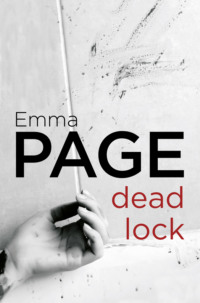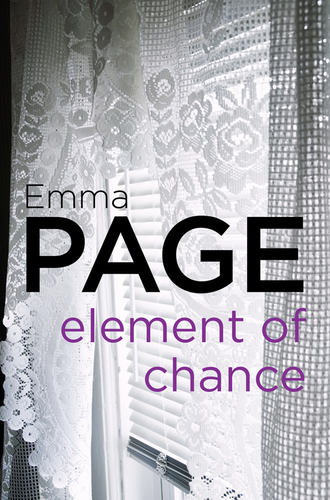
Полная версия
Element of Chance
‘Tessa Drake,’ Viner said, unwilling to play along any further with the inspector’s needling game.
‘Miss Droopy Drawers,’ Bennett repeated more loudly. ‘She fancies you. That’s what all this is in aid of.’ His eyes held no amusement. ‘Don’t encourage her. Gives the station an untidy look.’
‘I most certainly never—’ Viner began with angry protest but Bennett held up a hand.
‘Just a joke,’ he said smoothly. ‘Got to be able to take a joke.’ Over by the door Tessa Drake turned her head and glanced back at Viner. She gave him an amused smile.
Beneath the graceful leaves of a vast green plant set on a ledge, old Ottaway rose suddenly from his bench and said in a high clear voice, ‘I come not to bring you peace but a sword.’
‘He’s off again,’ Bennett said with weary irritation. A constable, coming up from the canteen, caught the tail end of Ottaway’s utterance and quickened his pace along the corridor.
‘Now Jezebel was a whore,’ Ottaway said on a half-singing note. The constable reached him as he raised his right arm and cried, ‘A painted whore of Babylon.’
‘That’s all right then,’ the constable said, firmly soothing. He slipped a steely hand under the old man’s elbow. ‘Come along.’ He began to propel his captive towards the door. ‘Nobody worries about Jezebel any more.’ Ottaway was well known in the station; he had long been a widower, lived alone, had grown increasingly eccentric.
A few yards from the door Ottaway halted. ‘I want to register a complaint,’ he said suddenly in a normal voice. ‘About the posters outside the cinema. Most indecent. Not at all the thing for women and children to be faced with.’
‘We’ll see to it,’ the constable said. ‘Leave it to us. No need for you to worry.’ He steered Ottaway out on to the steps, pointed him in the direction of home.
Certainly not the liveliest of mornings. Viner glanced at his watch. Might as well go and see that woman about the furnished house dispute. Probably not theft at all, simple carelessness most likely. He crossed over to the window and looked out. The mist was beginning to lift, it might turn out to be one of those softly golden October days. He wouldn’t bother with a car. It was no distance, he’d enjoy the walk. He turned from the window and met Inspector Bennett’s questioning frown.
‘I’m just off to talk to the furnished-house woman,’ Viner said.
Bennett slid him a sly, teasing look edged with malice. ‘Don’t go chatting her up, then. She struck me as a bit of a man-eater.’
‘I can take care of myself.’ Viner added a half smile to the end of his words, to neutralize the irritation showing in his tone. He’d recently got himself transferred to Barbourne after the girl he’d been engaged to had suddenly married someone else. Bennett had ferreted about till he’d uncovered the story. He’d found several opportunities to flick at Viner barbed little remarks about women in general and Viner’s relationship with them – or what the inspector apparently fancied might be Viner’s relationship with them – in particular.
The air was fresh and sweet when Viner came out of the station into the grey and gold morning. A few minutes later, as he walked up the High Street, he noticed for the first time a grey stone building standing between a bookshop and a bank. A fair-sized building, solid, prosperous-looking, with the name painted on a board in elegant gilt lettering: The Kingfisher Secretarial Agency.
He halted on the edge of the pavement, gazing across at the premises. Through the ground-floor windows he could see girls moving about. He felt a sharp surge of loneliness. Barbourne was barely twenty miles from his native town of Chaddesley but he had set foot in it perhaps only half-a-dozen times before his official transfer a few weeks before; the very unfamiliarity of the place was the main reason he had chosen it.
At the centre window on the first floor a girl leaned forward, lifted a hand in greeting, smiled down at him. Colin recognized her at once; Tessa Drake, eighteen years old. For several seconds he continued to look up at her with an expressionless face; she remained smiling down at him. Then he turned and walked rapidly away up the High Street.
CHAPTER 2
THE INTERIOR of the Kingfisher Agency was pleasantly warm. Hazel Ratcliff pulled off her coat as she came into the first-floor office. ‘That wretched bus,’ she said in a voice of habitual grievance. ‘It gets later every morning.’ She went over to the window and stood beside Tessa Drake who was looking down into the street. ‘What’s so interesting out there?’ she asked. Her eyes followed Tessa’s gaze, lighted on a tall broad-shouldered man walking swiftly up the road. Still an eye for a well-built man, Hazel Ratcliff, in spite of the years slipping well past thirty; still hopeful in spite of precious little encouragement.
She turned from the window. ‘Come on, we can’t stand here all day,’ she said forcefully. ‘To work!’ She dealt Tessa a would-be playful blow on the shoulder with twelve solid stones behind the punch. ‘If we don’t get started we’ll have Mrs Rolt after us.’
‘You ought to find somewhere to live in Barbourne,’ Tessa said idly. ‘Then you wouldn’t have this fuss about being late. I can’t think why you want to live in the country.’
‘I don’t want to,’ Hazel said with energy. ‘Not now.’ She was one of the staff who had come over in the summer from Tyler’s. Her widowed mother had died shortly afterwards, leaving Hazel bereft of immediate family. ‘There’s nothing I’d like better than to give up the cottage and move right into town,’ she said. ‘But you tell me where I can get a decent flat at a reasonable rent.’
The office manager put his head round the door. ‘Come along, ladies,’ he said in his precise way. ‘Mustn’t get the week off to a bad start.’ He gave Miss Ratcliff a speculative glance; he had caught the tail end of the conversation. A flat … just possible that he might be able to help her. A heavily built woman, Miss Ratcliff, unpleasingly wide in the hips. But a good skin, all that country air. And rather large, quite pretty eyes.
‘Just coming, Mr Yoxall,’ Hazel said. ‘Has Miss Padmore been asking for me?’
He shook his head. ‘No, but she will be, in a minute or two.’ If Hazel were to lose two or three stones, package herself a good deal less dowdily, lighten the colour of her hair, she might turn out to be quite passable. He followed the two females into the corridor. He didn’t turn an assessing eye on Tessa Drake, knowing that the most extravagantly drawn bounds of possibility couldn’t be expected to include eighteen-year-old girls with willowy figures and pretty faces.
He went up the short flight of steps to Mrs Rolt’s office and knocked at her door. ‘Just one moment,’ she said when he came in; she was sorting a bundle of papers. He stood silently by the desk, watching her with a calm, detached look. Without doubt a striking-looking girl, though not altogether to his taste. He didn’t particularly admire the evident traces of foreign blood. He understood that her mother had been the daughter of a Greek artist, a sculptor or something of that sort. Quite an arty background really, her father had taught art here in Barbourne.
She dealt with the last of the papers, sat back and gazed at him. Then all at once she remembered his uncle’s death; her face took on a look of commiseration.
‘I was sorry to hear about your uncle,’ she said. Old George Yoxall had died early on Saturday morning, in the local hospital where he had been taken a few weeks previously after a heart attack. He had been Mrs Rolt’s landlord; he had occupied the top flat in Fairview. The middle flat had been tenanted by a pair of young men during the time Alison had rented the garden flat. Not the same pair of young men but a rather bewildering succession of young men connected to each other in a variety of ways: friends, relatives, colleagues. The last young man had gone abroad just before George Yoxall’s heart attack and the matter of the tenancy had been allowed to stand over while he was in hospital.
‘That’s what I came to see you about,’ Yoxall said. ‘To ask if I might take tomorrow afternoon off to go to the funeral.’
‘Yes, of course.’ Highly inconvenient, but she could scarcely refuse. She would have liked to ask him what was going to happen to the flats but it seemed hardly politic to raise the question at this moment. He had a somewhat withdrawn air. Had he been deeply affected by his uncle’s death? He certainly used to visit the old man regularly, she was accustomed to seeing him on the stairs at Fairview. It had been through him that she had heard about the flat in the first place, shortly after she had joined Kingfisher.
‘Thank you,’ he said. ‘I’ll be here for the morning as usual.’
She stood up. ‘Oh, while I think of it—’ She went over to a filing cabinet and pulled open one of the lower drawers. ‘You remember the girls we interviewed the week before last for that post with the textile firm?’ She knelt on the floor, leafed through papers. ‘If you’d just glance at these two applications. I think we might see the girls again.’ She passed him the sheets. ‘One of them might be suitable for the job at the transport depot.’
She sat back on her heels and considered him for a moment as he bent his head over the pages. Might he have expectations from his uncle? Old Mr Yoxall had owned quite a bit of property. There were other relatives, she knew that, she’d glimpsed them sometimes.
She picked up a folder, glanced through it. Ah well, either Mr Yoxall or one of the executors would tell her soon enough if she’d have to move. She gave a faint sigh. She very much hoped she wouldn’t have to start looking for somewhere else. Fairview would suit her very well for the remainder of the time she envisaged living in Barbourne. She liked the house; it was spacious and comfortable, the large garden so agreeably private, with a gate that gave direct access to the hill.
She stood up. ‘You might take those application forms with you,’ she said to Yoxall. ‘Have another look at them, let me know what you think.’
At ten o’clock Alison closed the door on the rattle and clack of the large main office and walked briskly upstairs. As always on a Monday morning there were a dozen matters she must discuss with her senior partner. She came up to the landing and saw that Hazel Ratcliff was just coming out of Miss Padmore’s room. The half-smiling look Hazel wore changed abruptly to one of impersonal coolness as she caught sight of Alison. She stood back against the wall to let her go by, in a posture of almost aggressive deference.
Oh Lord, Alison thought, suppressing a sigh, her attitude seems to be getting worse instead of better. She had known Hazel during the eighteen months she had worked at Tyler’s and had got on reasonably well with her in spite of what Alison always felt to be Hazel’s instinctive dislike for an obviously more successful and attractive female.
Hazel was the kind of woman to identify herself with her employer, particularly if the employer was a man. She had been very loyal to old Mr Tyler and when, very shortly after his death, Alison had announced her intention of leaving Tyler’s, Hazel had behaved as if she thought Alison guilty of the grossest treachery. An opinion she saw no reason to modify when she realized that Alison was taking with her to Kingfisher a substantial number of Tyler clients.
Even though Hazel had now joined Kingfisher herself there was little sign of any thaw in her manner. She seemed to feel the ceaseless necessity to make it clear that her own connection with Kingfisher was due solely to the lamentable demise of Tyler’s, a calamity she appeared to think Alison had helped to precipitate by her departure.
Alison smiled now with determined friendliness at Hazel standing back against the wall. ‘Good morning, Hazel,’ she said resolutely. ‘Is Miss Padmore busy just now?’
Hazel gave her an unsmiling look. ‘Not that I’m aware of, Mrs Rolt.’ She went off down the stairs. Alison stood for a moment looking after her. Hazel was supposed to divide her time equally between both partners but already she had unmistakably attached herself to Miss Padmore. Alison had more or less given up summoning her, preferring to see at the other side of her desk the cheerful face of a willing – if less competent – junior.
She shook her head, dismissing the subject, and rapped smartly on the door of her senior partner’s office.
Judith Padmore was running a pencil down a column of figures when Alison came in. She held up a hand for silence till she had set down the total, then she sat back in her chair and gazed at Alison. She was an efficient-looking woman dressed with provincial smartness in a neat tailored suit. Her hair was trimly set, carefully tinted to mask the grey.
‘We must try to do something about accommodation for Hazel,’ she said briskly. ‘It’s really not very sensible for her to go on living at the back of beyond.’
CHAPTER 3
THE BARBOURNE branch of CeeJay Plant Hire Limited was situated on a sprawling industrial estate a short distance outside the town. It occupied a large stone building with a vast yard crammed with dumpers, diggers, excavators, handling, shifting and loading equipment of every description.
In his airy office on the first floor Andrew Rolt sat at his desk, explaining the more intricate details of a contract proposal to Paul Hulme, who was standing at his side, looking down at the papers spread out before them.
‘Yes, I think I’ve got that,’ Hulme said deferentially. I’d have got it a lot quicker if Rolt had been able to keep his mind on what he was telling me, he thought. ‘There is just one other point I’m not clear about.’ He picked up one of the sheets, ran a finger down it.
‘Leave it,’ Rolt said abruptly. He pushed back his chair and stood up. ‘You’ve got the gist of the thing. I’ll fill in the gaps another time. You can put all this away now, you can get on with that other stuff for the time being.’ He jerked his head at a wire basket full of documents.
Hulme began to gather up the papers from the desk. He arranged them in an orderly pile, crossed the room and put them in a drawer. He was a trimly built, neat-featured young man with an air of control and calculation. He was being trained as a hire contract negotiator and at the same time carried out a number of duties as a general assistant to Rolt.
Hulme picked up the wire basket. In the doorway he paused and looked back at Rolt. ‘Is there anything I can get you? Coffee? Or tea?’ No doubt about it, Rolt’s manner was preoccupied, even faintly distressed.
‘What’s that?’ Rolt turned his head. ‘Oh, no thanks, nothing.’ He strove to keep sharpness from his tone. ‘No need to hurry too much over that stuff, take your time.’ The lad had a tendency to wet-nurse him; there were times when he didn’t find it amusing.
He looked down at his desk, at a sheaf of letters that must be answered. He gave a long sigh. ‘Send Miss Webb in, will you?’ he said to Hulme. The chore wouldn’t grow any more attractive for being postponed. And he would be away pretty well all the afternoon at Kain Engineering.
Mandy Webb was in the outer office. She looked up as Rolt’s door opened, picked up her notebook and came over at once on Hulme’s nod. He didn’t stand back for her in the doorway but remained half blocking the entrance so that she had to squeeze past. They exchanged a long, intimate, unsmiling look.
Mandy took her seat a little to one side of Rolt’s desk. He shuffled the letters together, selected one at random, ran his eye over it and began to dictate. A quarter of the way through the batch, his vagrant attention suddenly abandoned the mail completely. Mandy was sitting with her legs crossed, her notebook resting on her right knee; her head was still bent, her pencil still poised. He saw her all at once not as Miss Webb, short and none too pretty, the junior secretary who had been with CeeJay a matter of weeks, but simply as a female.
He stared at her without subterfuge. What would it be like to start all over again with someone entirely new, to put the past behind him for ever? For a moment the idea seemed exhilarating as if by some magic he might find youth and innocence again along with courage. But the moment passed. I couldn’t do it, he thought, clenching his fist over the scatter of letters. It would need the kind of confidence and self-esteem he had never greatly possessed even when he’d started out on life. His grip on the remnants of these essential qualities was now so insecure that he dared not risk putting it to any more exacting test than those inescapably facing him.
And the effort it would take to find the right woman, the expenditure of time, of energy. And no guarantee of any more lasting success even if he succeeded in finding and winning this mythical being.
Mandy raised her head at the lengthening silence. Her eyes, bold, confident, young, met his. He picked up the next letter and resumed dictation.
Ten minutes later he finished the pile. He sat back in his chair and watched with relief as the door closed behind her. He had barely time to draw a sweet breath of solitude when there was a brief knock and the under-manager, Arthur Ford, entered almost at the same instant.
‘Come in,’ Rolt said loudly when Ford was already inside the room. Ford looked surprised for a moment and then smiled as if humouring an invalid.
‘Beryl’s been on to me again to ask you over one evening,’ he said. ‘My life won’t be worth living if I’ve got to tell her I can’t persuade you.’ Beneath the cheerful surface words others less cheerful rose unspoken into the air … All alone in that great empty house, can’t be good for you …
Rolt closed his eyes for a second. Impossible to choke the fellow off, pushy and intrusive as he was, when all he was doing was trying to display goodwill.
‘Nothing in the least formal,’ Ford said. ‘Just a few drinks, a bite to eat. And a hand of cards.’
Heaven preserve me from such ghastly jollity, Rolt said in his head, unable to voice a refusal until Ford committed the cardinal error of mentioning a specific date.
Ford instantly obliged by committing the error. ‘What about tomorrow?’ he suggested.
At once Rolt said in a friendly tone, ‘I’m sorry, I can’t manage tomorrow. I’ve already got something fixed. But it’s very kind of Beryl to think of me.’ Dreadful woman, he thought, that appalling mixture of ignorance, prejudice, gentility and ruthlessness.
Ford began to marshal his guns. ‘Friday then?’ he said amiably.
Rolt shook his head with an air of regret. ‘I’m afraid I’m busy on Friday evening as well.’
Ford let off another salvo. ‘How about Saturday?’
Rolt pretended to give the notion some thought. ‘Mm,’ he said on a deceptively affirmative note that caused Ford’s eyes to glisten in momentary satisfaction. ‘Saturday ought to be – oh no, stupid of me, I’ve just remembered, Saturday’s no good either.’
A steely determination came into Ford’s expression. ‘Yes, I know how it is,’ he said as if abandoning the struggle. Then he fired his big guns. ‘Name your own day, that’ll be best. I know Beryl will be delighted to fit in with whatever’s convenient to you.’
There’s no help for it, Rolt said to himself with resigned amusement, all at once relaxed now that there was no way of winning. ‘Wednesday,’ he said magnanimously. ‘The day after tomorrow. How would that suit you?’
‘Wednesday would be fine.’ Ford couldn’t resist a smile of victory.
‘But tell Beryl not to go to any trouble,’ Rolt said without hope.
‘I’ll tell her.’ Ford spread his hands. ‘But it won’t be any use. You know what women are.’
Rolt looked at him suddenly like a man taking part in an entirely different conversation. ‘Oh yes,’ he said in a voice from that other dialogue, ‘I know what women are.’
A quarter to one. In the records office on the ground floor at CeeJay, Arthur Ford looked at his watch. He ought to be thinking of clearing up, popping up to the first floor to collect Robin, get off home in time for lunch. His son – in fact Robin was his only child – had left the local grammar school a year ago. He was doing three-month training stints in various departments at CeeJay, was considered a bright lad, possible executive material.
Ford glanced out of the window and saw Celia Brettell’s silver-grey car pulling up on the forecourt. She stepped out on to the concrete. She wasn’t carrying a briefcase, only a handbag, so this wasn’t going to be a business visit but one of her personal swoops to take Andrew Rolt off to lunch.
Ford watched her approach the side entrance. Good-looking in her hard-edged way, considerably more hard-edged now than when she’d first walked into CeeJay on the look-out for good secondhand plant, ten or twelve years ago. Chestnut-brown hair, grey eyes, smooth pale skin; well groomed, carefully presented. But the whole package lacking any suggestion of mystery or romance. She had done everything she could possibly do with her appearance but there was nothing she could do about her aura, which radiated an unmistakable air of natural dominance, strong purpose, shrewdness and a highly practical approach to life and very probably also to love.
Ford neither liked nor disliked her. She was one small factor in his career situation and so he was obliged to take a certain amount of notice of her. But he couldn’t help admiring her. She was successful in a pretty tough area of commercial life; she had the essential bulldog quality.
He had known her since the first time she’d walked up the steps of CeeJay, well before the day Alison Lloyd had set foot in the place as a junior secretary. Alison had married her boss in the classic tradition – and they’d all been so sure once upon a time that he’d marry Celia. When the marriage broke up after only a couple of years it wasn’t very long before Celia’s business visits – which had continued as usual – began to coincide once more with the approach of Andrew’s lunch hour.
It occurred to Ford suddenly and with total certainty that Celia was at long last going to succeed in marrying Rolt. He stepped back from the window and went out through the door of the records office, arriving in the lobby in time to present a casual appearance of having just come down the side staircase as Celia Brettell entered the building.
‘Oh – hello there!’ he said with a friendly smile. ‘Haven’t had the pleasure of seeing you for a week or two.’
Oh yes, Celia said to herself, and precisely what is old Creepy Crawly up to this time? Aloud she said, ‘That last lot of trenchers hadn’t been properly maintained. You’ll have to keep a sharper eye on the lads.’
His smile grew if anything a trifle more friendly. ‘I’ll certainly take note of it,’ he said affably.
‘Is Andrew about?’ she asked.
He nodded. ‘Yes. He’s in his office. Oh, by the way,’ he added, ‘I’ve just remembered, he’s looking in on us on Wednesday evening. On Beryl and myself, that is. I don’t know if you’d care to join us. You’d be very welcome.’ He knew that would get her; she simply wouldn’t be able to say no to a chance of spending a few hours in Rolt’s company, however diluted. ‘Nothing very fancy, you understand, just a pleasant homely evening.’
Whatever it’ll be, it won’t be that, Celia thought grimly. However had Andrew allowed himself to accept such a frightful invitation? ‘That’s very kind of you,’ she said, burnishing her expression into a smile. ‘I’d love to come.’ With so many lies thickening the air she couldn’t resist throwing in another. ‘I’ve always wanted to meet your wife.’
‘Something else I’ve remembered,’ Ford said with a knowing air. ‘What’s this gossip I hear about a merger between Sugdens and Murdoch Factors?’ Sugdens was the comparatively small but highly efficient firm for which Celia worked; Murdoch Factors was much larger, with a wider range of interests. If there was anything in the whisper – and it had reached Ford’s permanently-cocked ears only recently and as the merest breath of rumour – then it seemed to him a good deal more likely that the deal would be a take-over rather than a merger.



